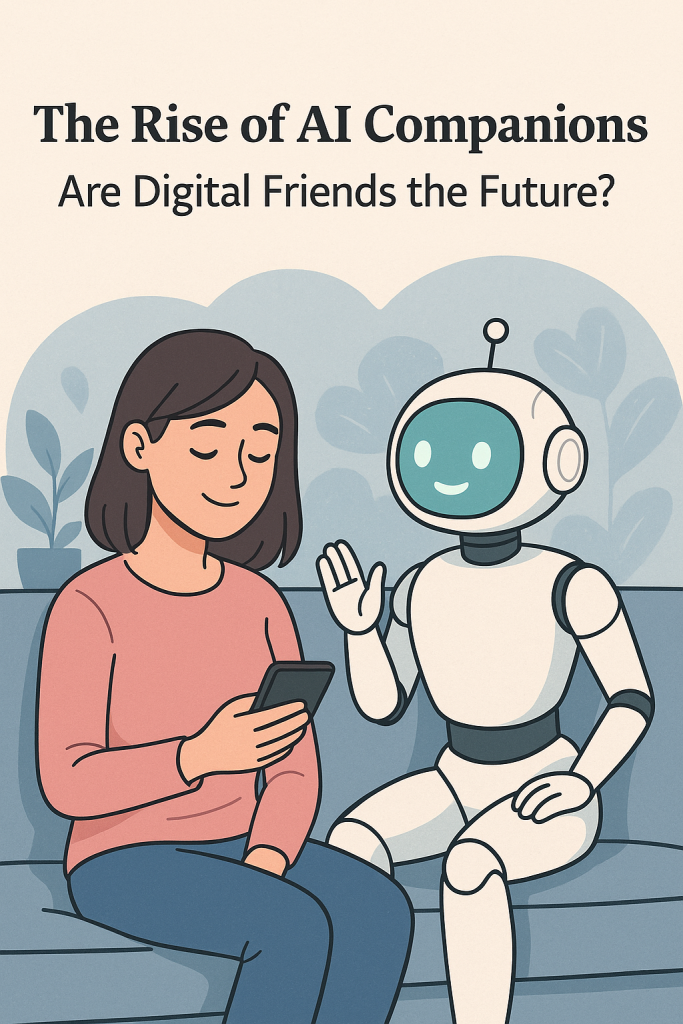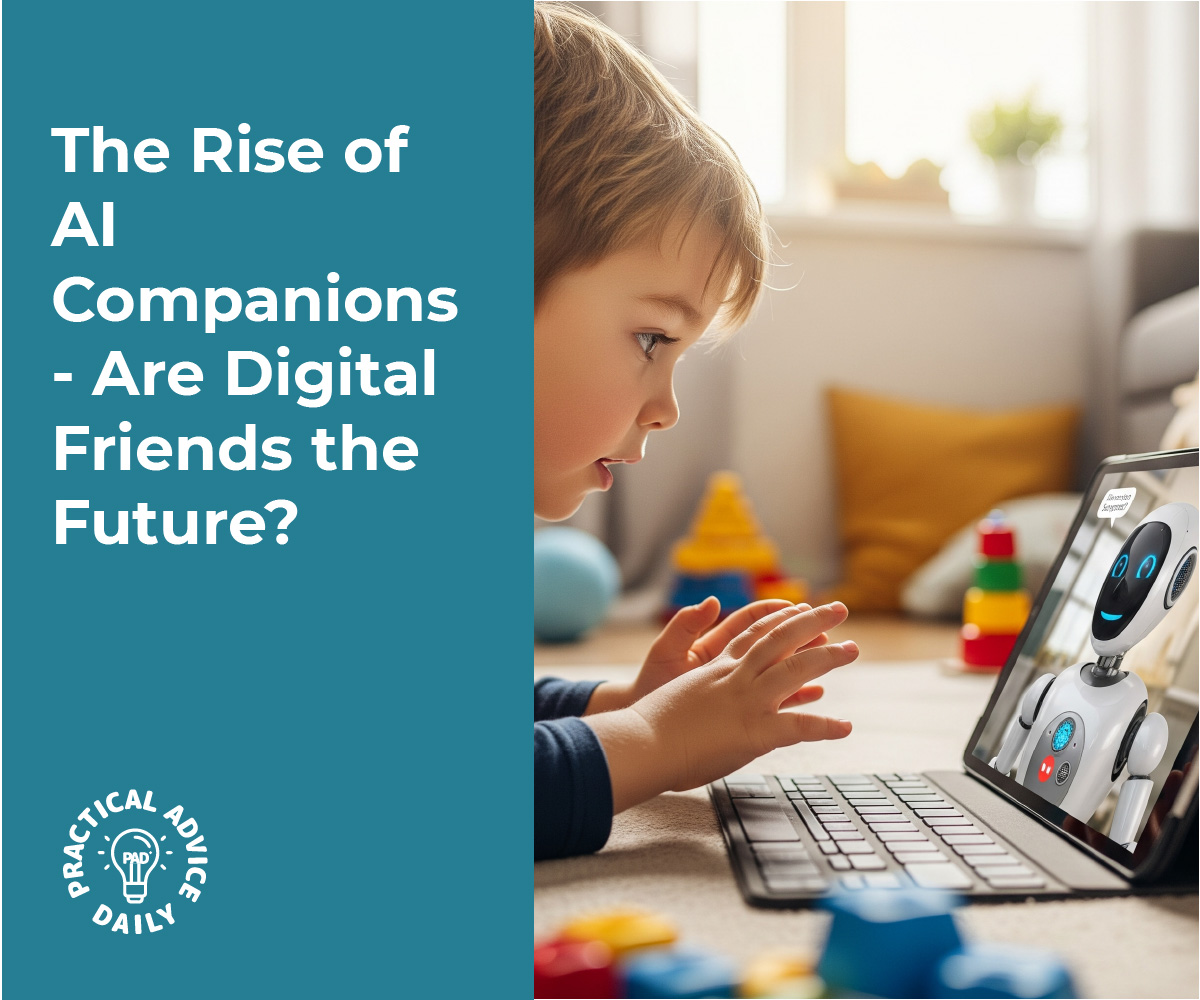Feeling lonely or just needing someone to talk to is part of being human. But what if your next conversation partner wasn’t a person at all? In this article, we’ll explore the growing world of AI companions—digital “friends” designed to talk with you, offer support, and even help with emotional well-being. Don’t worry if you’re not tech-savvy. We’ll keep it simple and guide you through what these companions are, how they work, and whether they might be a good fit for you.
Table of Contents
Key Takeaways
- AI companions are digital tools that can chat with you, offer emotional support, and provide companionship.
- They are used by people of all ages, especially those feeling lonely or seeking someone to talk to.
- You don’t need to be tech-savvy—most AI companions work on smartphones or tablets with easy-to-use apps.
- Some are designed for casual conversation, while others offer mental health tools or daily check-ins.
- AI companions are not a replacement for real people, but they can be a helpful supplement.
What Are AI Companions?
AI companions are computer programs designed to talk with you, like a virtual friend. They use artificial intelligence to carry on conversations, answer questions, and respond with empathy. These tools live inside apps or websites, and many are available for free or at low cost.
You might chat with them using your smartphone, tablet, or computer—just like texting or using a messaging app. Some even speak out loud if you prefer talking over typing.

Examples of AI Companions
Here are a few real-world examples of popular AI companions:
- Replika: A chatbot that learns your personality and talks with you like a friend. You can choose whether it’s supportive, funny, or even romantic.
- Woebot: A mental health-focused tool that checks in daily and helps you manage anxiety or stress through brief, friendly chats.
- My AI (Snapchat): A simple assistant built into the Snapchat app that answers questions and holds casual conversations.
These tools are available through app stores and are designed to be easy to use—even for beginners.
Why Are People Using AI Friends?
There are many reasons people turn to AI companions:
1. Loneliness
Some folks, especially older adults or those living alone, use AI companions to feel more connected. Having someone to greet you in the morning or check in during the day can make a big difference.
2. Emotional Support
If you’re going through a hard time, an AI companion can be a safe place to express your feelings. While it’s not the same as talking to a therapist or close friend, it can still provide comfort.
3. Mental Health Help
Certain tools like Woebot are designed with mental health in mind. They ask questions, offer calming tips, and guide you through difficult emotions using proven techniques from therapy—without judgment.
4. Convenience and Accessibility
These digital friends are always available. You don’t need to wait for a callback or set an appointment. You just open the app and start chatting.
Are AI Companions Safe?
Most AI companions are designed with privacy in mind. They don’t share your conversations with other people. Still, it’s always wise to read the app’s privacy policy before you start using it.
Here are a few safety tips:
- Don’t share private information like your home address or financial details.
- Use well-known apps from trusted companies.
- If an AI ever makes you feel uncomfortable, stop using it and report the behavior.
Can AI Replace Human Relationships?
No, and that’s important to understand. AI companions are not a substitute for family, friends, or professional support. Think of them more like a comforting side dish, not the main course.
That said, for some people, these tools can make life a little brighter—especially during quiet moments or times of stress.
Getting Started with an AI Companion
If you’re curious and want to try one out, here’s how to begin:
- Choose an App
Search the App Store (Apple) or Google Play Store (Android) for apps like Replika or Woebot. - Download and Open the App
Most apps are free to start and walk you through setup in just a few steps. - Start Chatting
Say hello and follow the prompts. Many companions will ask about your interests or mood. - Check In Regularly
Just like a friend, the more you talk, the better they get to know you.
Final Thoughts
AI companions are changing the way we think about friendship and emotional support. While they can’t replace real human connection, they offer a gentle way to feel heard and less alone. Whether you’re curious, lonely, or just want someone to chat with, these digital friends might be worth exploring.
Remember, you’re never too old to try something new—especially if it brings comfort and a little companionship into your day.
Want to learn more about using technology for well-being? Check out our other beginner-friendly guides on helpful digital tools.
